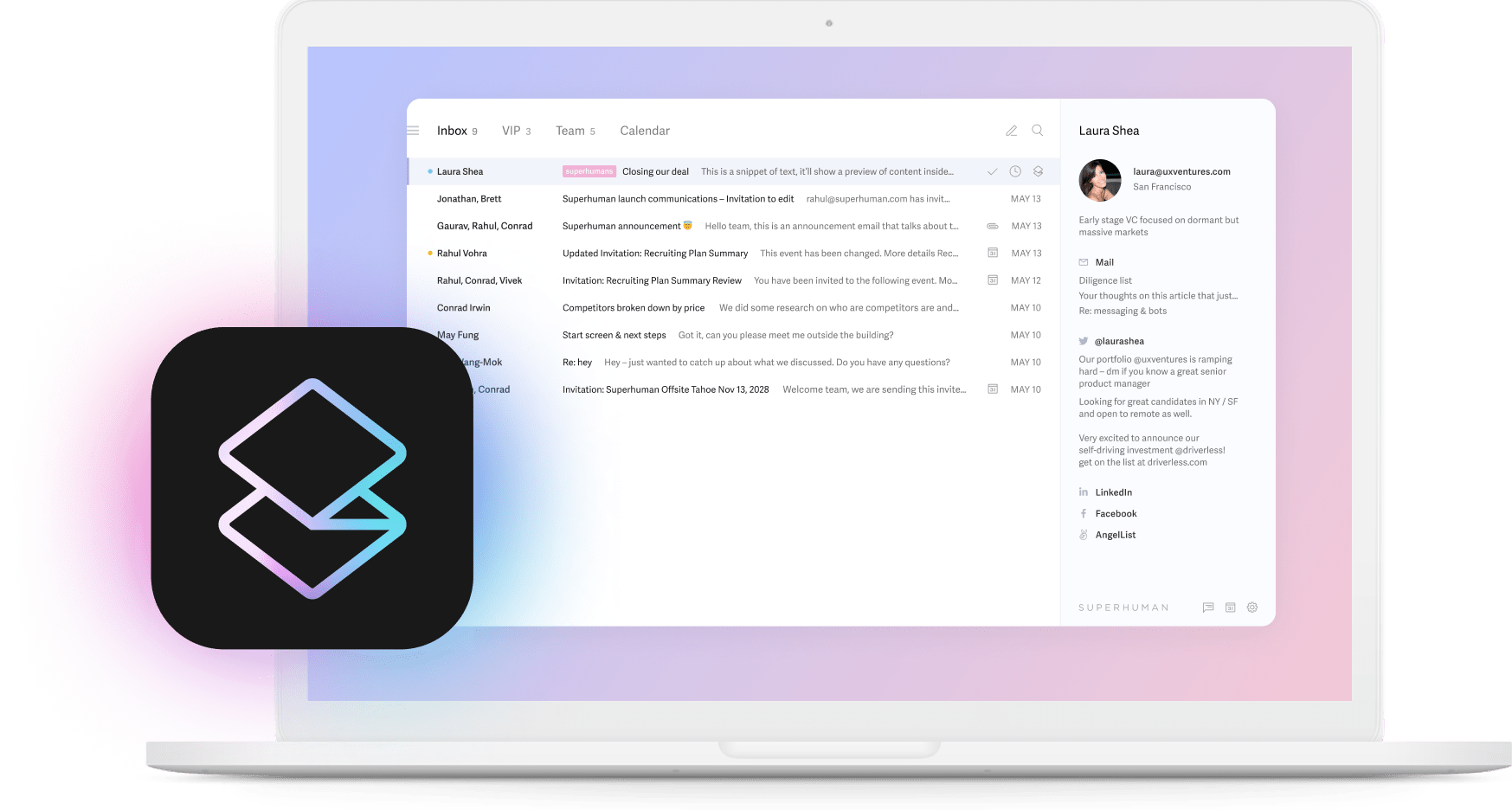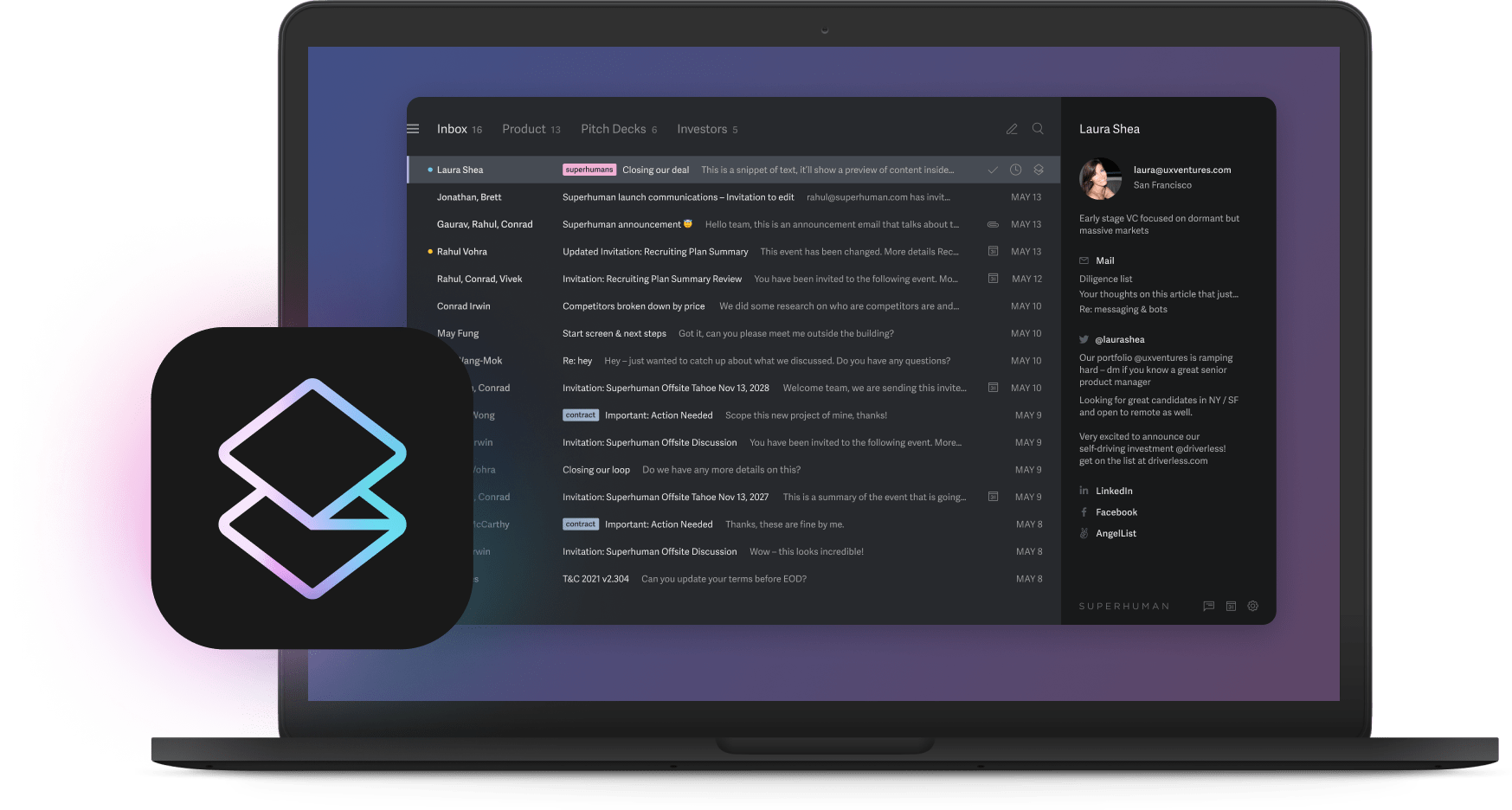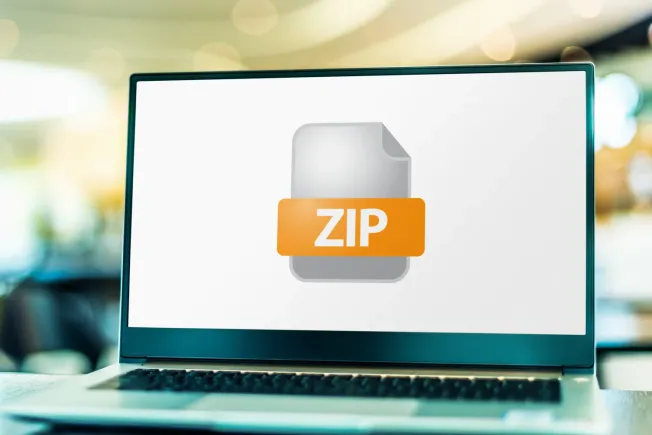
Remember when AI assistants just answered basic questions? Those days are gone. Today's AI tools have evolved into specialized helpers that can transform how you get things done. Instead of trying to do everything okay, they now excel at specific tasks. Let's break down the best AI assistant apps of 2025 by what they're actually good at, so you can find the perfect tools for your workflow.
Understanding today's AI assistant landscape
AI assistants have come a long way from simple voice commands. They now integrate deeply with specific workflows and learn from how you use them to become more personalized over time. When looking for the right AI tool, think about what it's best at, how well it connects with your other apps, how it adapts to your style, and whether it's worth the price. We've put together this list based on what real people say works well for them, not just fancy features that look good on paper.
Best all-purpose AI assistant apps
1. Google Gemini
Google Gemini works with text, images, and voice while connecting smoothly with all your Google stuff. It's especially good at helping you research things and answering general questions.
Key features: Understands multiple formats, works with Google tools, smart reasoning Best use cases: Research, answering questions Limitations: Needs a Google account to use all features Pricing: Free version available, Premium costs $19.99/month
Learning curve: Easy to pick up with a simple interface that doesn't need much training Integration capabilities: Works seamlessly with Google Workspace, YouTube, and Android devices Customization options: Gets better at understanding your preferences as you use it Support quality: Lots of help guides and community forums, but direct support is limited
Learn more about Google Gemini
2. Meta AI
Meta AI is great at creating text and images with a conversational feel. It really shines when you need help with creative content or managing social media.
Key features: Writes text, creates images, carries on conversations Best use cases: Creative content, social media stuff Limitations: Doesn't work well with non-Meta platforms Pricing: Free with Meta accounts
Learning curve: Pretty easy for basics but takes practice to master advanced features Integration capabilities: Works naturally with Facebook, Instagram, WhatsApp, and Threads Customization options: Some basic preference settings but not deeply customizable Support quality: Self-help center with few options for direct help
3. ChatGPT mobile app
The ChatGPT app puts OpenAI's powerful language model right on your phone with voice features and web browsing for help whenever you need it.
Key features: Smart language understanding, voice mode, can browse the web Best use cases: Writing help on your phone, finding information Limitations: Sometimes gets specialized topics wrong Pricing: Free version available, Plus subscription costs $20/month
Learning curve: Super easy to use — just talk to it like a person Integration capabilities: Limited connections to other apps; developers can use the OpenAI API Customization options: Plus subscribers can set custom instructions and build their own GPTs Support quality: Great help guides and active community forums
Best AI assistant app for email productivity
4. Superhuman
Superhuman turns email from something you dread into a secret weapon. This AI-native email app learns how you write and helps craft messages that sound just like you, while cutting down the time you spend in your inbox.
Key features:
- Superhuman AI turns quick thoughts into fully written emails that match your voice
- Split Inbox automatically sorts your emails by importance
- Instant Reply helps you process emails twice as fast
- Auto Summarize boils down long email threads
- Auto Drafts creates follow-ups for you automatically
- Ask AI lets you search your inbox using normal questions
Real-world productivity gains:
Teams using Superhuman save 4 hours every week and respond 12 hours faster on average. You'll handle twice as many emails in the same amount of time, making your inbox feel way lighter and your workflow smoother.
Learning curve: Takes a bit of getting used to, but personalized onboarding sessions get you up to speed quickly Integration capabilities: Works with HubSpot CRM, Google Calendar, Microsoft Exchange, and IMAP Customization options: Highly adaptable with keyboard shortcuts, snippets, and AI that learns your writing style Support quality: White-glove onboarding and dedicated customer success managers
Superhuman automatically archives hundreds of emails weekly while making sure important messages don't slip through the cracks. The system learns how you write over time rather than making you correct it.
Pricing: $30/month for individuals, team pricing available
Try SuperhumanBest AI assistants for personal productivity
5. Pi (Personal AI assistant)
Pi focuses on having conversations that feel personal, recognizing emotions, and remembering what you've talked about before. It's great for daily planning and personal help.
Key features: Personal conversations, understands emotions, remembers past chats Best use cases: Daily planning, personal assistance Limitations: Doesn't connect well with other productivity tools Pricing: Free with premium features you can pay for
Learning curve: Super easy — just chat like you would with a friend Integration capabilities: Mostly works on its own without connecting to many other apps Customization options: Gets to know you better the more you talk to it Support quality: Basic help guides but not much direct support
6. Notion AI
Notion AI fits right into the popular note-taking app, helping you write better, summarize content, and brainstorm ideas. It's perfect for taking notes, managing projects, and creating content.
Key features: Writing helper built into Notion, summarizes content, helps brainstorm Best use cases: Note-taking, project management, content creation Limitations: Only works inside Notion Pricing: $8/month on top of your Notion subscription
Learning curve: Takes some getting used to if you're not already familiar with Notion Integration capabilities: Deeply connected with Notion; works with 100+ other tools through Notion's API Customization options: Adapts to your workspace content Support quality: Good documentation, active community forum, and email support
Best AI assistants for creative work
7. Runway ML
Runway ML makes it easy for creative people to use multiple AI models with a simple interface and great collaboration tools.
Key features: Lots of AI creative tools, team collaboration, intuitive design Best use cases: Making images, editing videos, creative projects Limitations: Free version doesn't do much Pricing: Basic plan free, paid plans start at $12/month
Learning curve: Pretty easy interface but takes time to master all the creative possibilities Integration capabilities: Works with Adobe Creative Cloud and video editing software Customization options: Tons of control over how your creative projects turn out Support quality: Active community forum, helpful tutorials, better support if you pay
8. Midjourney
Midjourney creates amazingly realistic images from text descriptions with detailed style controls. It's become essential for concept artists and designers.
Key features: Creates realistic images from text, style controls, artistic direction Best use cases: Concept art, product design, illustrations Limitations: No free version, runs through Discord Pricing: Plans start at $10/month
Learning curve: Tough to master — you need to learn how to write good prompts and use Discord Integration capabilities: Works through Discord, can export images to other creative tools Customization options: Extensive controls for fine-tuning how your images turn out Support quality: Helpful Discord community, guides, but limited direct help
Best AI assistants for data analysis
9. Domo
Domo gives you a complete data platform with AI that makes it easier to access and analyze information through natural conversations.
Key features: Complete data platform, chat interface for asking data questions Best use cases: In-depth data analysis, building custom data apps Limitations: Takes time to learn all the advanced features Pricing: Call for enterprise pricing
Learning curve: Pretty steep -— you'll need some data background to really use it well Integration capabilities: Connects to over 1,000 data sources, cloud services, and business apps Customization options: Highly flexible - create custom visualizations and apps Support quality: Top-notch enterprise support with dedicated success managers
10. Microsoft Power BI
Power BI makes data visualization easy with deep Microsoft Office integration and machine learning capabilities for business insights.
Key features: Works with Microsoft Office, visualizes data, connects to Azure ML Best use cases: Business intelligence, interactive dashboards Limitations: The good stuff costs extra Pricing: Power BI Pro: $14/user/month, Premium: $24/user/month
Learning curve: Easy for basics but gets complex for advanced analytics Integration capabilities: Fits perfectly in the Microsoft ecosystem, connects to 100+ data sources Customization options: Lots of ways to customize dashboards and reports Support quality: Extensive documentation, active community, paid support plans
Best voice-first AI assistants
11. PolyAI
PolyAI specializes in voice-based customer service that speaks 45 languages and manages conversations like a pro.
Key features: 24/7 support, works with existing platforms, smart conversation handling Best use cases: Customer service, call centers, multilingual support Limitations: Designed for businesses, not individual consumers Pricing: Call for enterprise pricing
Learning curve: Takes some setup but designed to be used by business teams Integration capabilities: Works with CRMs, call center software, and has API access Customization options: Can be tailored to match your company's voice and handle specific workflows Support quality: Enterprise-level support with dedicated implementation teams
12. Alexa (Now Alexa+)
Alexa+ adds advanced AI to Amazon's voice assistant with better conversations and smarter home controls.
Key features: Smart home integration, custom routines, generative AI Best use cases: Controlling your smart home, hands-free help Limitations: Works best with Amazon products Pricing: Free with Amazon devices and apps
Learning curve: Super easy — just talk to it naturally Integration capabilities: Works with thousands of smart home devices, Amazon services, and third-party skills Customization options: Create your own routines, voice profiles, and pick your favorite skills Support quality: Lots of help guides, troubleshooting resources, and device support
How to choose the right AI assistant for your needs
When picking AI assistants, focus on finding tools that match how you actually work rather than trying to find one solution that does everything. For teams, think about collaboration features—team features like shared threads can turn personal tools into powerful team resources.
Learning curve and onboarding time: Think about how quickly you and your team can get comfortable with the tool. Some assistants like Superhuman offer personal onboarding sessions, while others expect you to figure things out yourself. Make sure the time you'll spend learning is worth the productivity boost you'll get.
ROI measurement techniques: The best AI tools show you clear proof of their value. Look for apps that track time saved, tasks completed, or other measurable improvements. Calculate if the subscription cost makes sense compared to productivity gains—for example, if Superhuman saves you 4 hours every week, that's huge for professionals whose time is valuable.
Data privacy considerations: AI assistants handle sensitive information, so security matters. Check for SOC 2 compliance, encryption, and data policies. Think about where your data is stored, whether the AI learns from your content, and if your information stays private.
Integration ecosystem importance: Specialized AI assistants become even more valuable when they connect with your existing tools. Look for assistants that work natively with your critical systems—whether that's your CRM, project tools, or communication platforms. When your AI tools can talk to each other, your workflow becomes smoother.
API availability for custom workflows: If your team has unique processes, check whether AI assistants offer API access. This allows you to build custom integrations that fit exactly how your business works, rather than changing your processes to fit the tool.
Finally, do the math on cost vs. benefit by calculating time saved against what you're paying.
The bottom line
The days of one-size-fits-all AI assistants are behind us. Today's market offers specialized tools designed for specific tasks, and the most productive professionals are combining these tools to enhance different aspects of their work.
Superhuman stands out as the best solution for email productivity, saving teams 15 million hours every year through its AI-native approach. Other specialized tools excel in their own lanes, from creative work to data analysis.
As AI technology keeps advancing, expect even more specialized and deeply integrated tools. The professionals who get ahead will be those who strategically choose the right specialized tools for their specific needs.
Frequently asked questions
What's the difference between a general AI assistant and a specialized one? General AI assistants try to handle a wide range of basic tasks across different areas, while specialized assistants focus on being really good at specific workflows with deeper features and better integrations.
Can I use multiple AI assistants together? Absolutely! Many professionals use several specialized AI assistants for different parts of their work. The key is finding which tools best address your specific needs in each area.
Are AI assistants secure for business communications? Security varies widely between platforms. Business-grade assistants like Superhuman and PolyAI typically offer stronger data protection and compliance features than consumer options.
How do AI assistants learn my preferences? Most modern AI assistants learn by watching how you use them rather than asking you to correct them. Superhuman, for example, studies messages you've sent to specific people to match your tone and voice automatically.
Which AI assistants work offline? Few AI assistants work completely offline since most use cloud processing. However, some like Notion AI and ChatGPT mobile app store certain capabilities for limited offline use.






